Related Research Articles
A concerto is, from the late Baroque era, mostly understood as an instrumental composition, written for one or more soloists accompanied by an orchestra or other ensemble. The typical three-movement structure, a slow movement preceded and followed by fast movements, became a standard from the early 18th century.
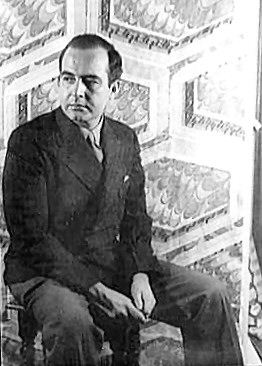
Samuel Osmond Barber II was an American composer, pianist, conductor, baritone, and music educator, and one of the most celebrated composers of the mid-20th century. Principally influenced by nine years' composition studies with Rosario Scalero at the Curtis Institute and more than 25 years' study with his uncle, the composer Sidney Homer, Barber's music usually eschewed the experimental trends of musical modernism in favor of traditional 19th-century harmonic language and formal structure embracing lyricism and emotional expression. However, he adopted elements of modernism after 1940 in some of his compositions, such as an increased use of dissonance and chromaticism in the Cello Concerto (1945) and Medea's Dance of Vengeance (1955); and the use of tonal ambiguity and a narrow use of serialism in his Piano Sonata (1949), Prayers of Kierkegaard (1954), and Nocturne (1959).

Johann Carl Gottfried Loewe, usually called Carl Loewe, was a German composer, tenor singer and conductor. In his lifetime, his songs ("Balladen") were well enough known for some to call him the "Schubert of North Germany", and Hugo Wolf came to admire his work. He is less known today, but his ballads and songs, which number over 400, are occasionally performed.

Alan Hovhaness was an American composer of Armenian ancestry. He was one of the most prolific 20th-century composers, with his official catalog comprising 67 numbered symphonies and 434 opus numbers. The true tally is well over 500 surviving works, since many opus numbers comprise two or more distinct works.
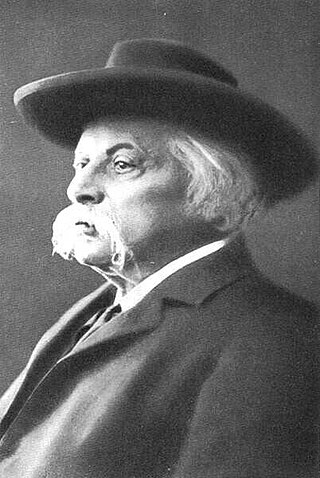
Karl Goldmark was a Hungarian-born Viennese composer.

Albert Charles Paul Marie Roussel was a French composer. He spent seven years as a midshipman, turned to music as an adult, and became one of the most prominent French composers of the interwar period. His early works were strongly influenced by the Impressionism of Debussy and Ravel, while he later turned toward neoclassicism.
Sea Pictures, Op. 37 is a song cycle by Sir Edward Elgar consisting of five songs written by various poets. It was set for contralto and orchestra, though a distinct version for piano was often performed by Elgar. Many mezzo-sopranos have sung the piece.

Adolf Georg Wilhelm Busch was a German-Swiss violinist, conductor, and composer.

Horatio William Parker was an American composer, organist and teacher. He was a central figure in musical life in New Haven, Connecticut in the late 19th century, and is best remembered as the undergraduate teacher of Charles Ives while the composer attended Yale University.
Lowell Liebermann is an American composer, pianist and conductor.

Vagn Gylding Holmboe was a Danish composer and teacher.

Joseph Johann Baptist Woelfl was an Austrian pianist and composer.
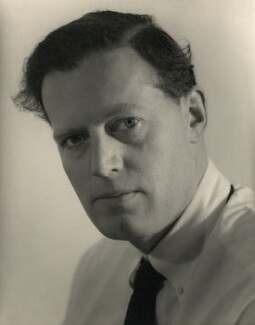
Richard Anthony Sayer Arnell was an English composer of classical music. Arnell composed in all the established genres for the concert stage, and his list of works includes six completed symphonies and six string quartets. At the Trinity College of Music, he "promoted a pioneering interest in film scores and electronic music" and jazz.

William Quincy Porter was an American composer and teacher of classical music.
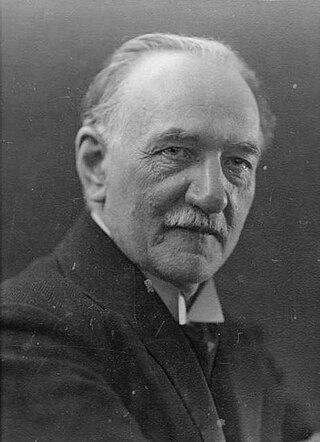
Josef Bohuslav Foerster was a Czech composer and musicologist. He is often referred to as J. B. Foerster, and his surname is sometimes spelled Förster.
John E. Ferritto was an American composer, conductor, and music professor.

The Andante and Finale is a composition for piano and orchestra that was reworked by Sergei Taneyev from sketches by Pyotr Ilyich Tchaikovsky for the abandoned latter movements of his single-movement Piano Concerto No. 3 in E-flat, Op. 75.
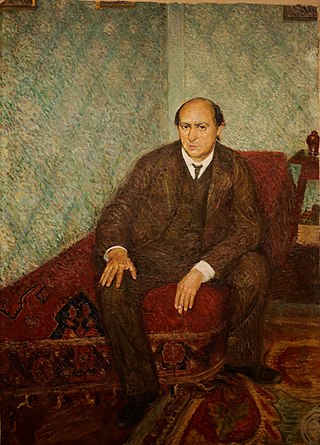
The Five Pieces for Orchestra, Op. 16, were composed by Arnold Schoenberg in 1909, and first performed in London in 1912. The titles of the pieces, reluctantly added by the composer after the work's completion upon the request of his publisher, are as follows:
Joseph Küffner (Kueffner) was a German musician and composer who, among other achievements, contributed significantly to the guitar repertory, including chamber music.

Helen Eugenia Hagan was an American composer, pianist and music educator of African descent.
References
- ↑ Yale University Class Triennial Record at Google Books, page 74
- ↑
- "Permanent Link to Library of Congress Record for Concerto No. 1, Op. 69 in F minor". 1933. Retrieved 2008-07-05.[ permanent dead link ]
- "Permanent Link to Library of Congress Record for Concerto No. 2, Op. 86 in G". 1942. Retrieved 2008-07-05.[ permanent dead link ]